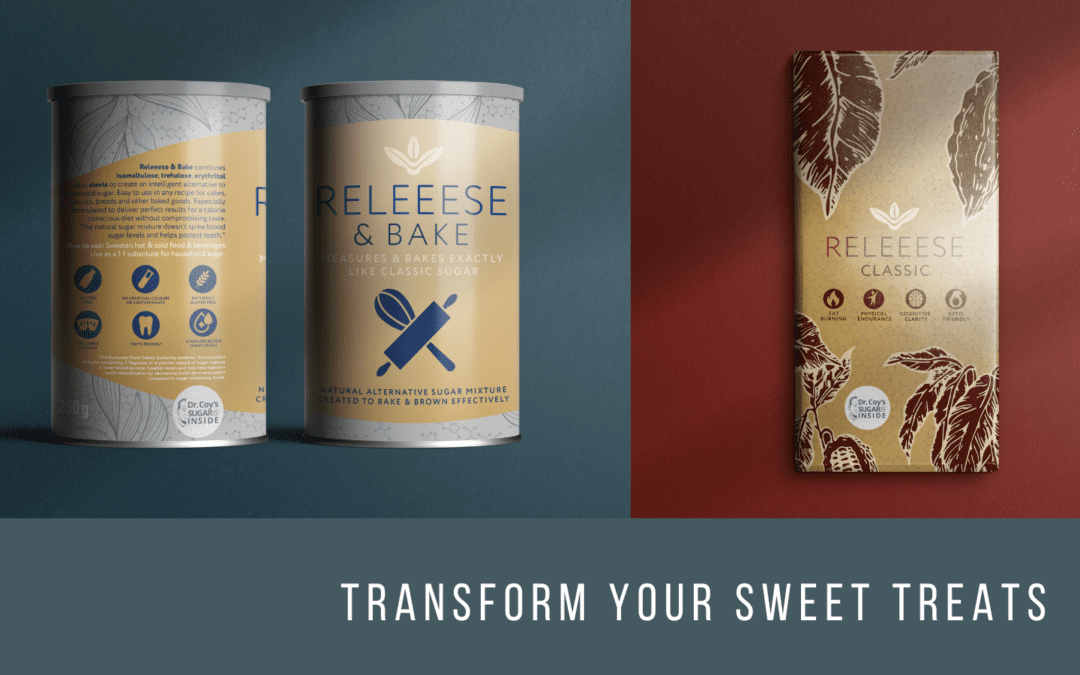As we step into 2024, we’re all more conscious of making healthy diet choices.
It’s difficult to understand confusing nutrition labels and choose healthy products that still taste good.
According to a recent survey, 52% of consumers said companies should not change the taste of food and drink products to make them healthier.
But what if a chocolate bar could taste perfectly sweet, have less calories, and keep blood sugar levels stable?
Nutritelligence is leading a movement to redefine our approach to healthy, sweet treats.
In partnership with Intelligent Sugar GmbH, founded by Dr Johannes Coy, we provide food and beverage companies with and patented technology and know-how.
Through licensing, companies can upgrade their existing products or create new healthier products using Dr Coy’s natural sugars and flours.
Additionally, we offer specialised ingredient consultation to help F&B companies enhance their products with Dr Coy’s sugars.
Our Intelligent Sugar Strategy highlights the health risks of consuming classic sugars like sucrose and fructose excessively, and the positive benefits of switching to Dr Coy’s sugars.
Dr Johannes Coy is a world-renowned biochemist and oncology expert, known for his discovery of the TKTL1 gene: the missing link in the evolution of modern humans’ intelligence and major diseases such as cancer, cardiovascular disease, diabetes, and dementia.
Understanding the link between the TKTL1 gene and our metabolism inspired Dr Coy to develop healthy sugar mixtures that can optimize our sugar metabolism, leading to improved physical and mental performance.
Naturally found in plants, milk, and honey Dr Coy’s sugar mixtures can stabilise blood sugar levels, switch on fat burning, reduce inflammation and prolong energy levels – without compromising the taste.
Dr Coy created specific combinations of these sugars to not only replicate the roles of classic sugars (taste, texture, and browning) but also actively contribute to metabolic and dental health (claims backed by the European Food Safety Authority and independent peer-reviewed studies).
It’s equally important for consumers to be able to make quick and informed decisions when shopping.
Dr Coy’s Stamp of Authority helps consumers to recognize that the product uses science backed ingredients. It’s not only a mark of quality and trust, but also represents a deliberate choice by the brand to prioritize your well-being.
It will help signal a brand’s commitment to pushing the boundaries of what’s possible in the food and beverage industry.
By shifting our collective mindset around sugar, we can raise the bar for global health. Through collaborations with innovative brands, we visualise:
In five years, the knowledge of ‘good’ and ‘bad’ sugars will be commonplace. Healthy alternative sugar options will be easily available.
In ten years, the prevalence of type 2 diabetes, obesity, and other lifestyle diseases, will be significantly lower.
This year, we are focusing on working with leading brands who share the same vision.
Giving you the opportunity to enjoy that chocolate bar, knowing you’re fuelling your body intelligently.
Get in touch to learn more about making a positive impact on healthy snack options.
References:

